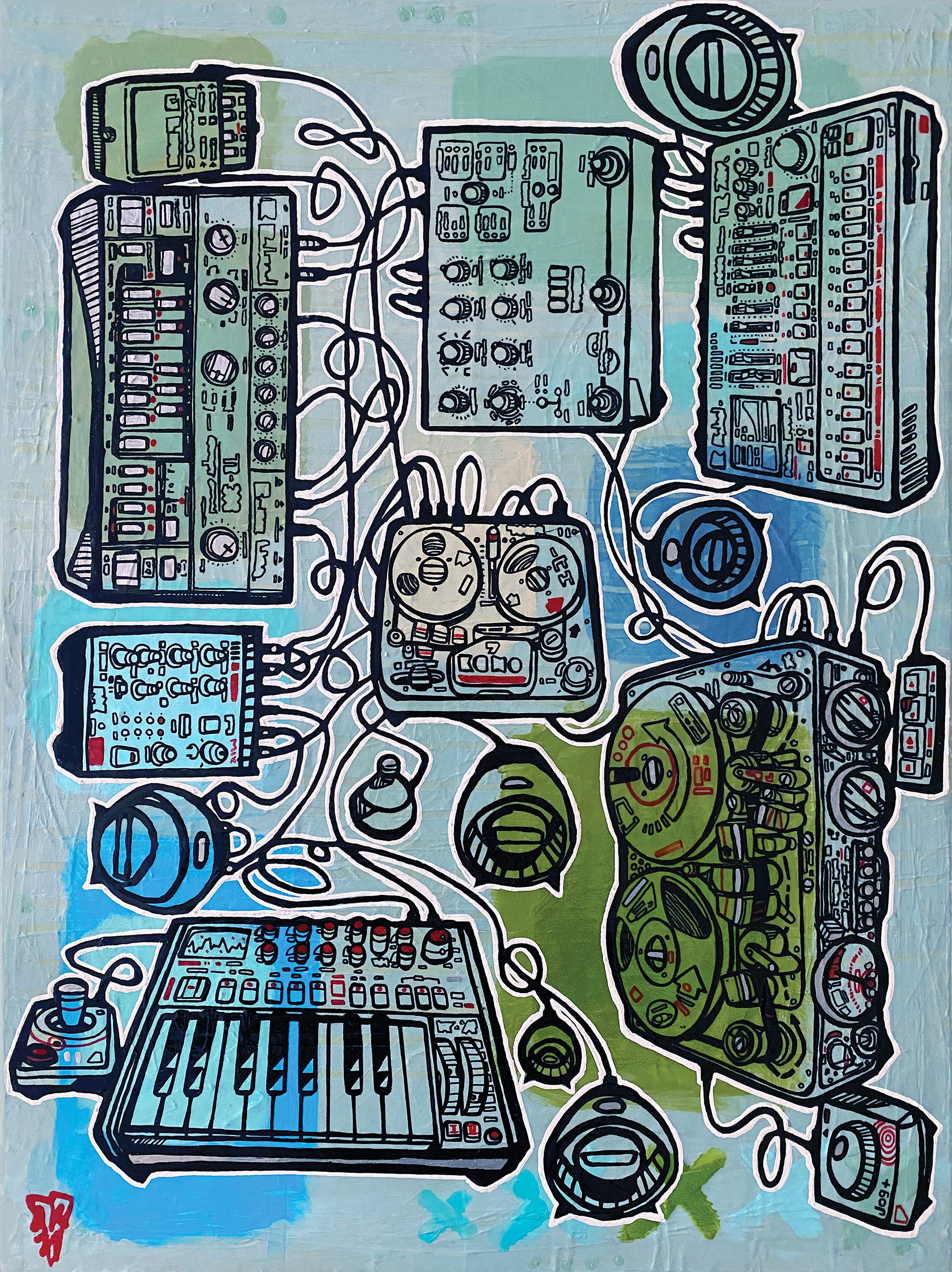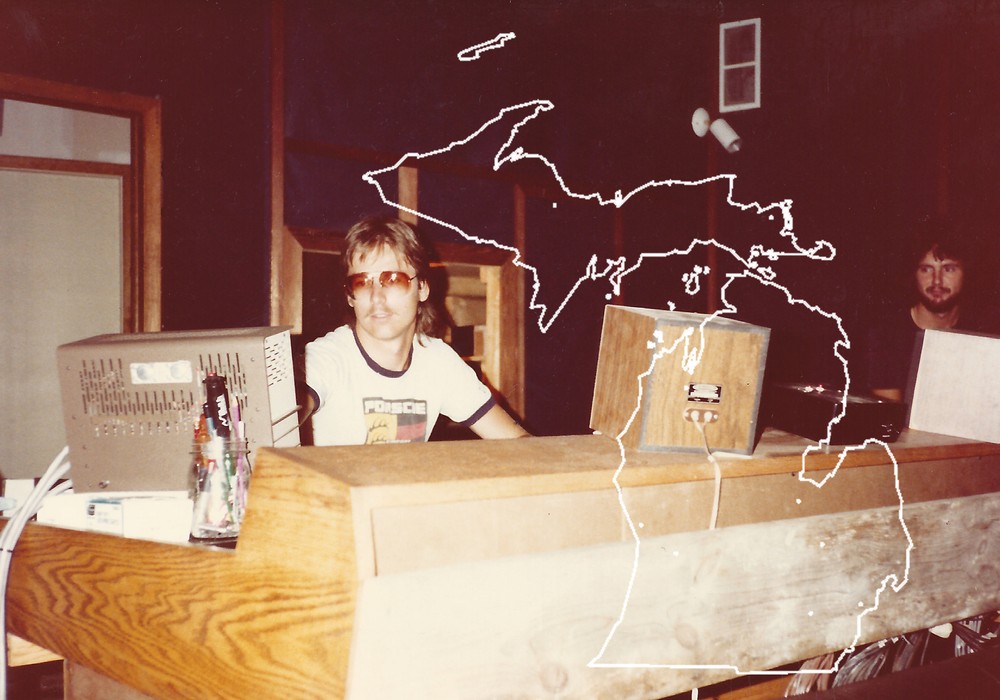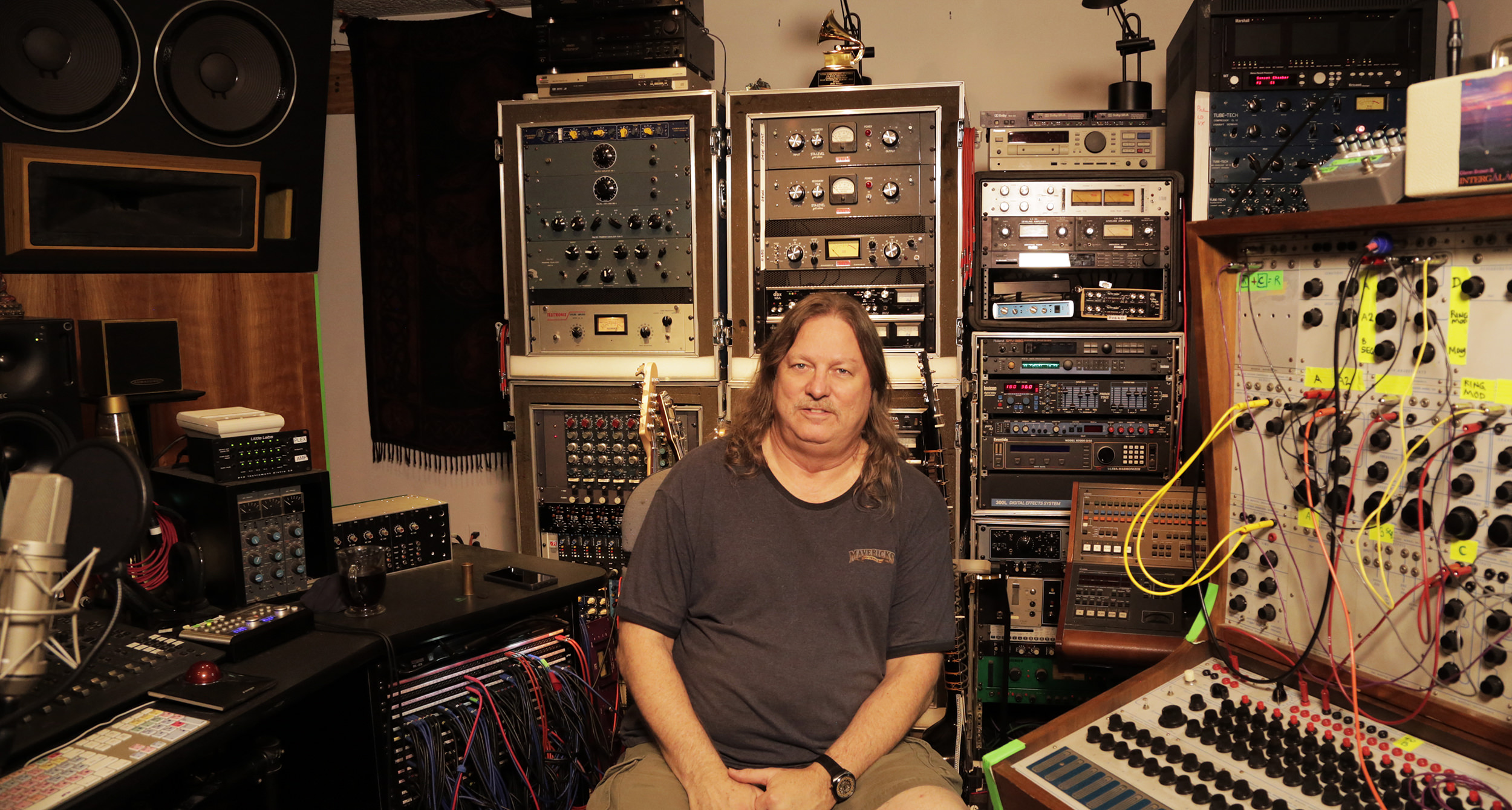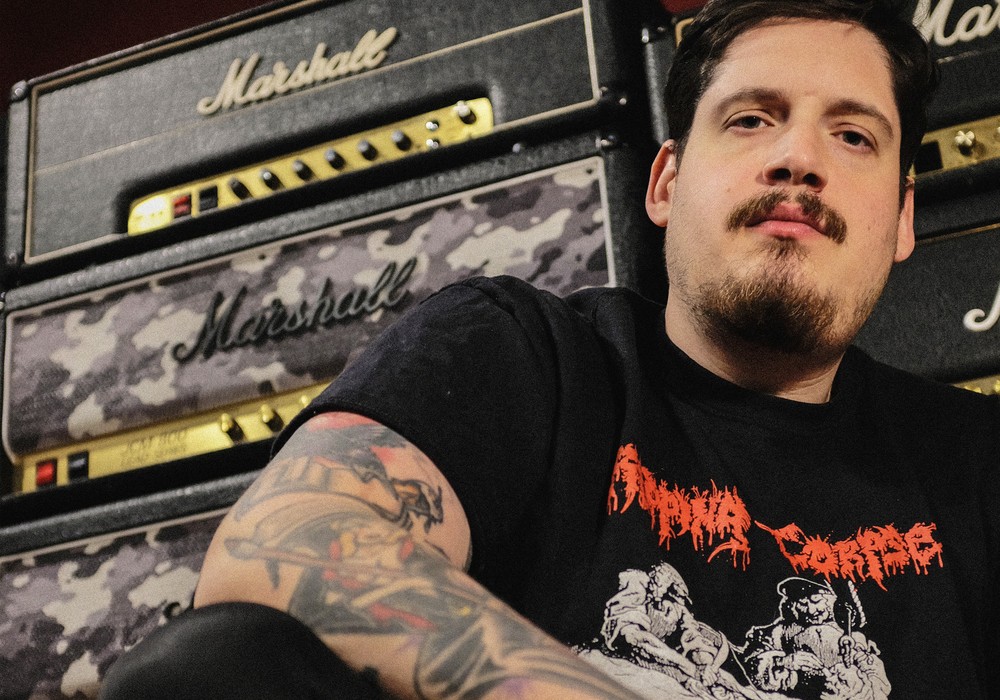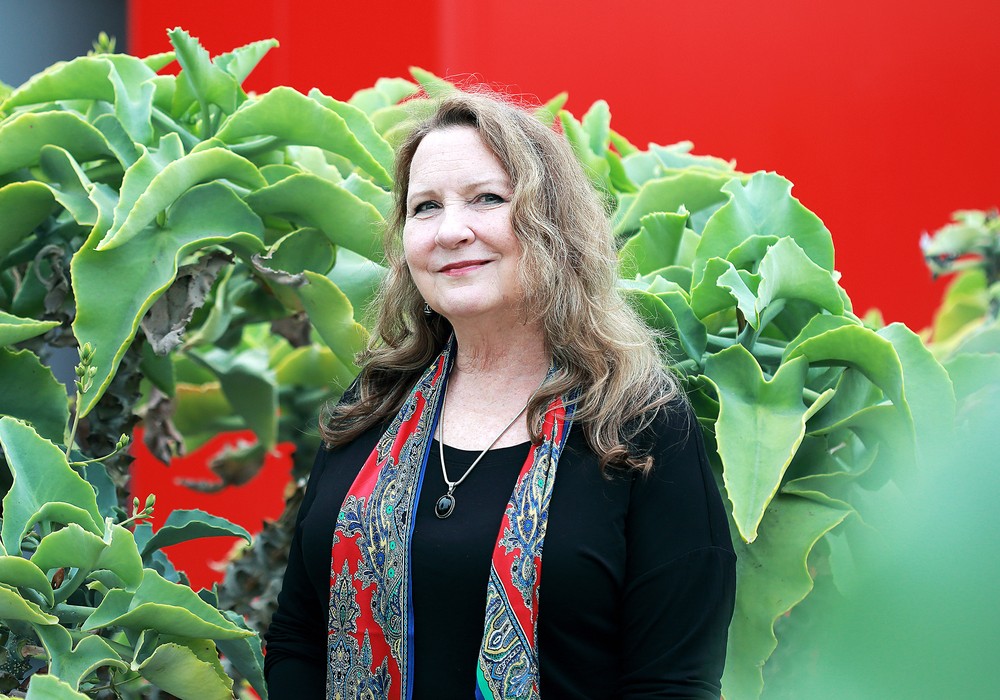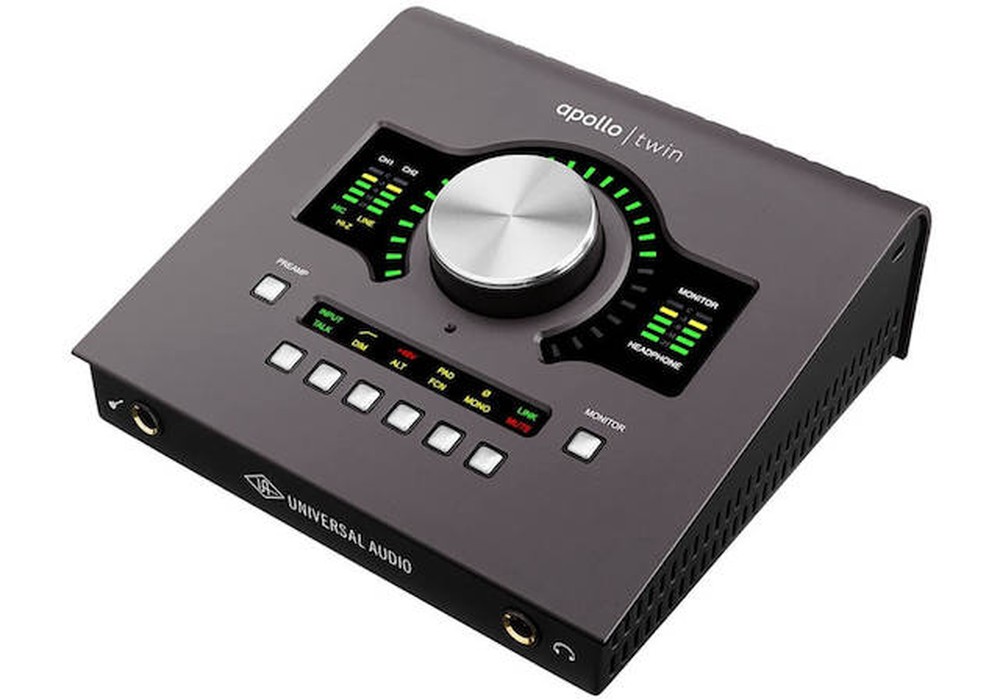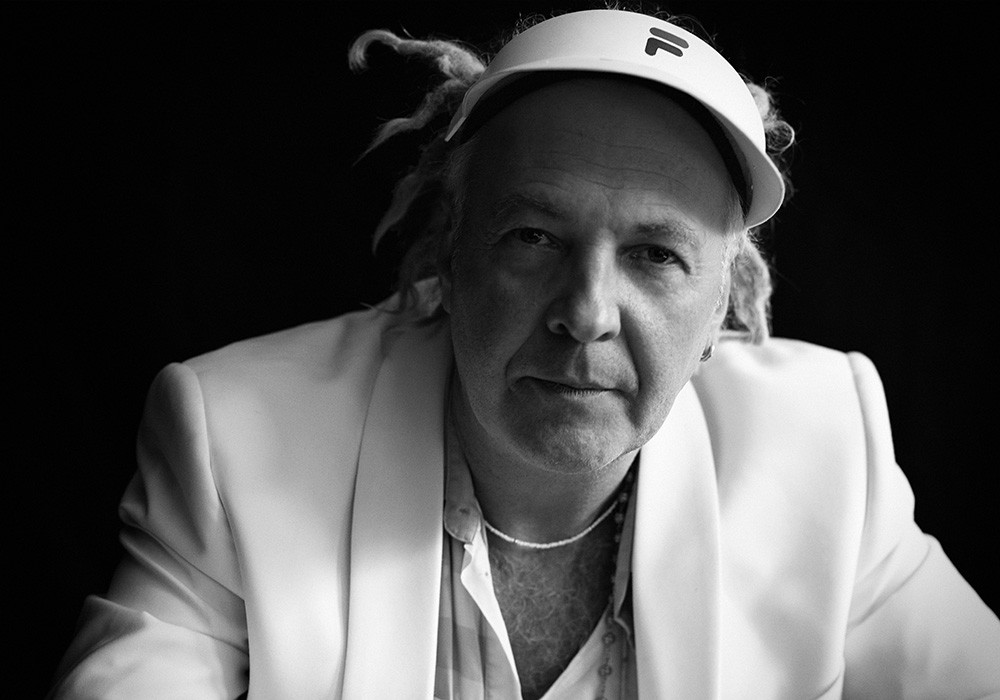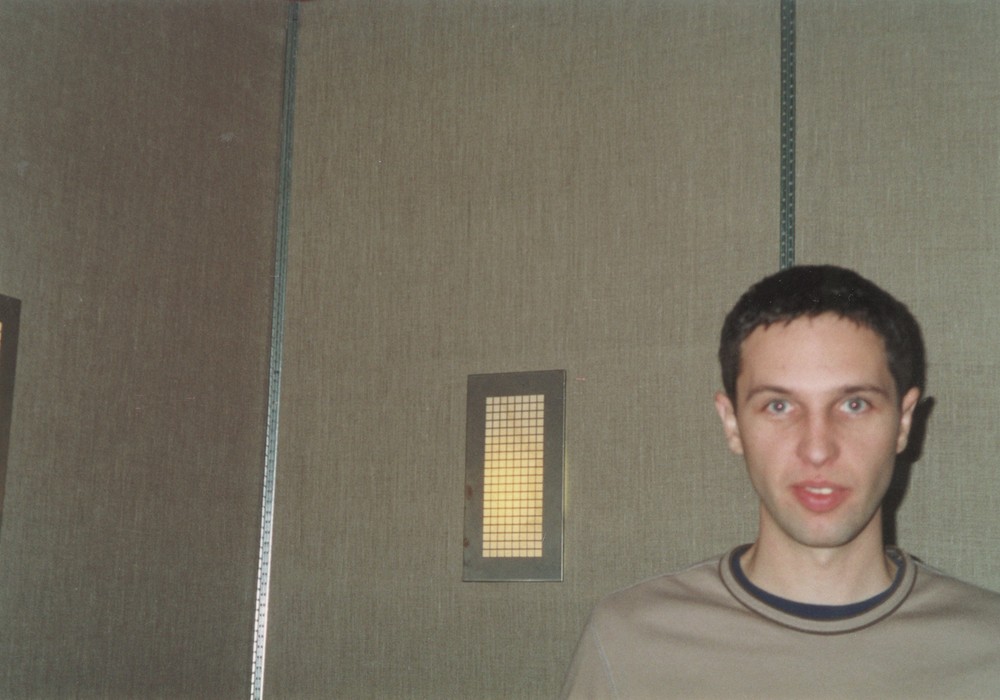Immersed in the world of recording since the age of 15, Glenn Brown wears many hats. With Michigan as his home base, Glenn has followed his Midwestern roots and developed an incredible work ethic. From Greensky Bluegrass to Spinal Tap, Glenn has been able to jump genres with ease. Throughout his career he has covered every area of the recording studio. Not only does he engineer, produce, mix, and master records, he also designs studios and recording consoles. Those who have met and/or worked with Glenn can testify on his skills, knowledge, and kindhearted demeanor. I sat down with Glenn to reflect on his recent Grammy win (Billy Strings’ Home for Best Bluegrass Album), and to talk about his journey as an artist in the recording business.
Photo Above: Glenn (L) punches in on the MCI JH-24 while CJ Vanston plays on Oberheim Four-Voice modular synth at Lansing Sound Studios.
How did you get into audio?
I started as a guitar player when I was 9 years old. Somewhere around the age of 13, I was playing in bands, and I became interested in recording. Everybody was hit with The Beatles and all the cool music in the late ‘60s. I got fascinated with the recording process, and I wanted to get a job in a recording studio. My mom happened to know people at the local TV station. She took me down there and said, “My son wants to work in the studio.” They had a beautiful audio studio; there was an 8-track Ampex tape deck and this cool Electrodyne console that Jim Diamond [Tape Op #57] later ended up with. I wanted to work there, but they said, “You’re too young. We can’t hire you.” They recommended I go work with this guy [Bob Baldori, #128] in a local studio, Lansing Sound. I went over there, and I immediately got a job. The first day I raked the leaves. Three months later, I was the chief engineer.
How old were you at the time?
I was 15. I was in a little over my head. It was a 4-track, 1/2-inch Ampex AG-440, and a couple of 2-track Ampex decks. They also had a bunch of other tape machines that we’d use for slap echo. They had a plate and a chamber [for reverb]. It was an interesting experience trying to track records to four tracks with the drums and bass, and maybe even the rhythm guitar, on track 1.
What year would this be?
In 1972. After a year or two of this, I was trying to go into quad mixing – everybody was discovering quad mixing. With a 4-track deck, you can’t really do that. It’d be difficult. I was playing in bands with Bill Laswell [Tape Op #93]; we were in there all the time, trying different experimental recordings. That’s what got me going. After quite a few years, I started my own company. We got a Studer A80 24-track and a Neotek console. It was a good experience to have my own company. Trying to make a living on making records is hard in Michigan. There’s not a ton of work. There’s work, for sure, but it’s definitely not Los Angeles. The music community here in Michigan is cool. There are definitely good groups. People struggle and work hard to get where they’re at. People spend a lot of time woodshedding and getting good on their instruments.
I’ve always attributed that to that Midwestern work mentality. Dig in and get to it.
Yeah, that’s true. The Midwest makes you work hard, and your working mentality is different. When I go to New York, or somewhere else, I’ll see that a lot of people working in those studios are from the Midwest. But that’s how I started. We had that studio for ten years.
Was that in Lansing?
Yeah, that was here in East Lansing. We worked hard to get where we were at. We did a lot of orchestral work and a lot of film scoring. We did jazz, blues, rock, hard rock, and heavy metal. Everything was coming in the door. I was doing a lot of punk. I had a lot of bands coming out to record. The Testors came out from New York; they were a punk rock band from the Dead Kennedys-era. There were a lot of alternative, weird music scenes happening here in Michigan, and we were tracking a lot of experimental music. I recorded bands like Twenty-Two Cave Gods and Tribal Dance Method. There was this whole scene of new music. We were able to survive. We had five employees at that studio. I was working seven days a week in order to pay everybody’s salary and keep it rolling. That eventually had to stop.
Were you into production at this time, or were you strictly engineering?
I would do either one. I considered production a little bit bigger...
